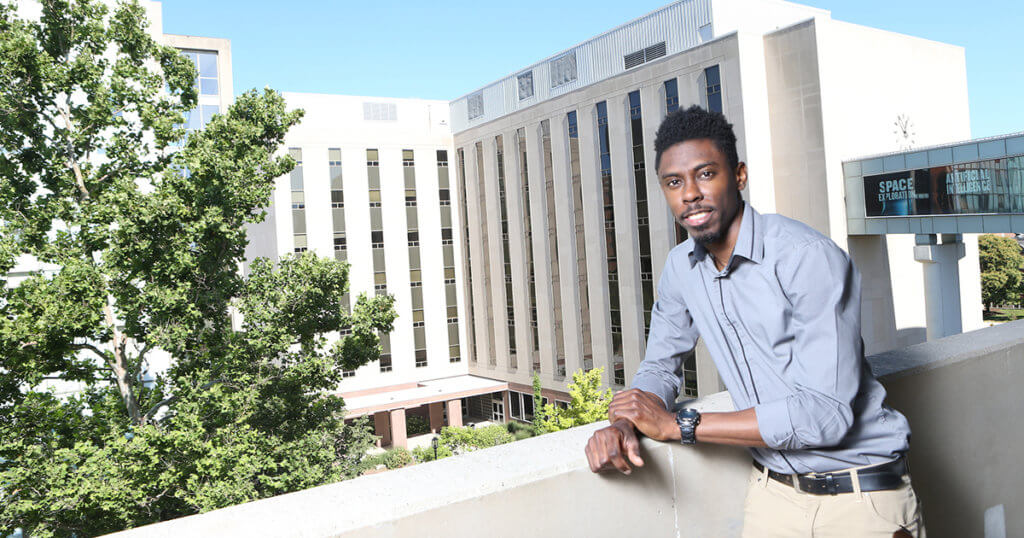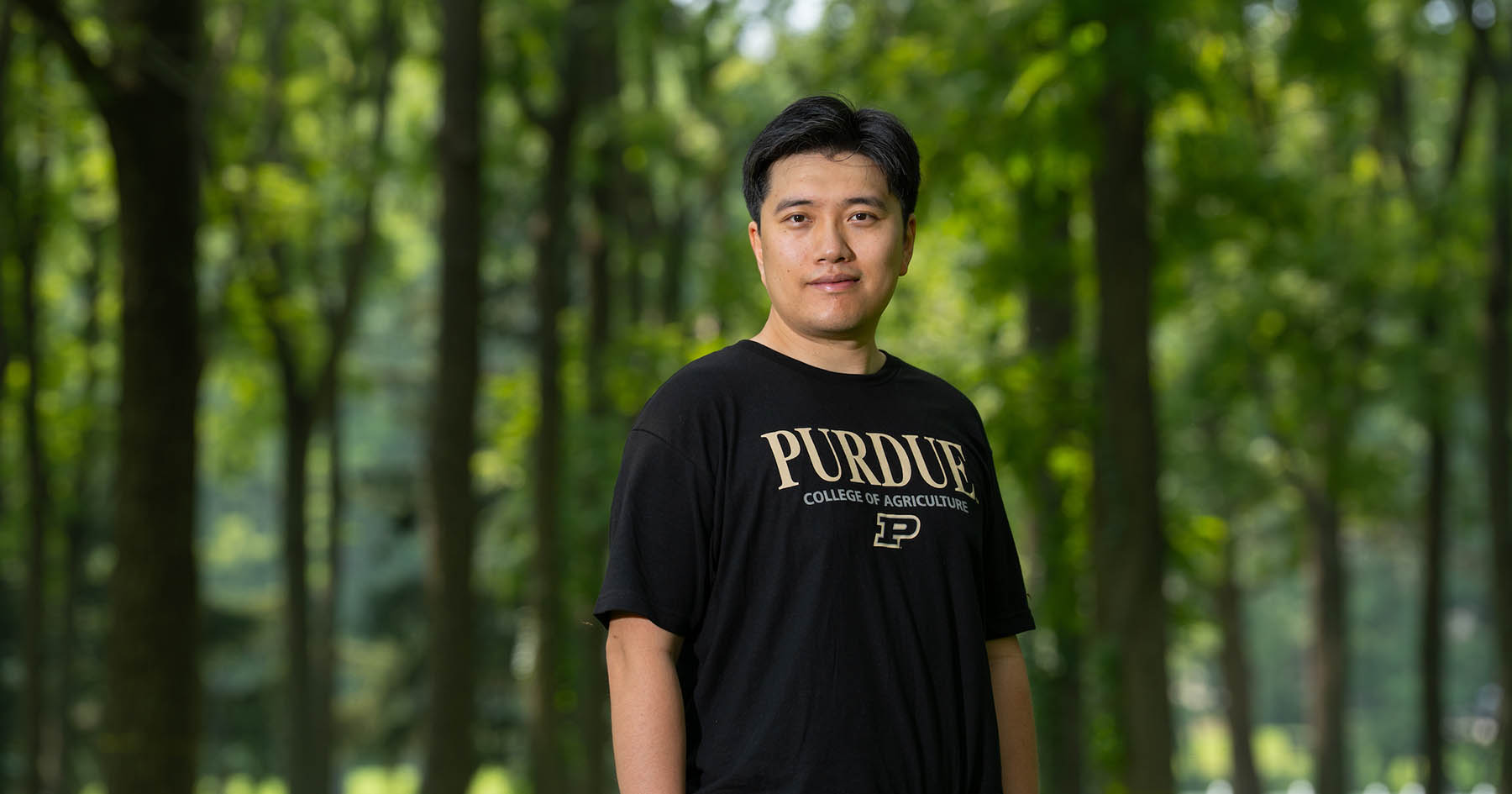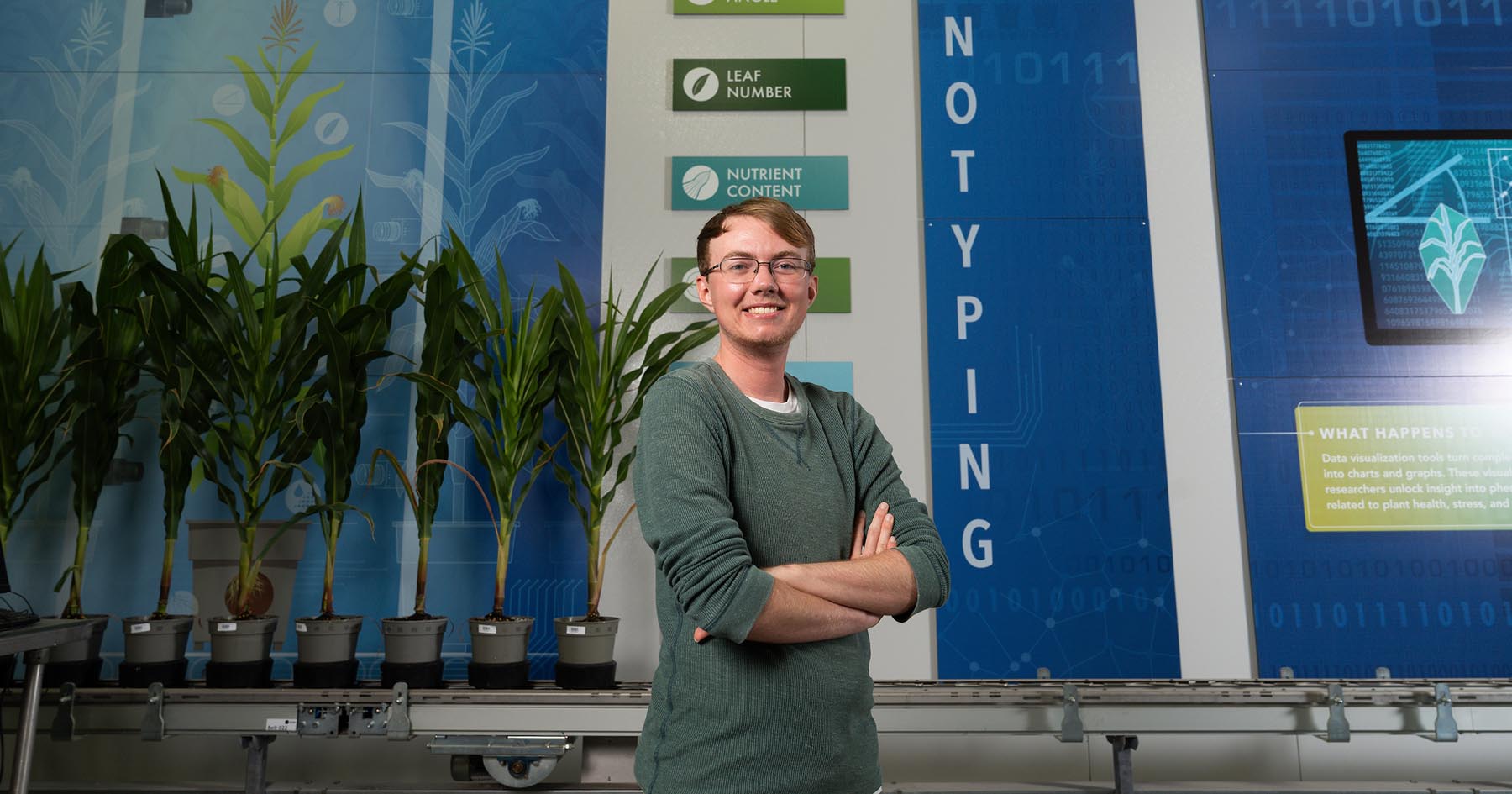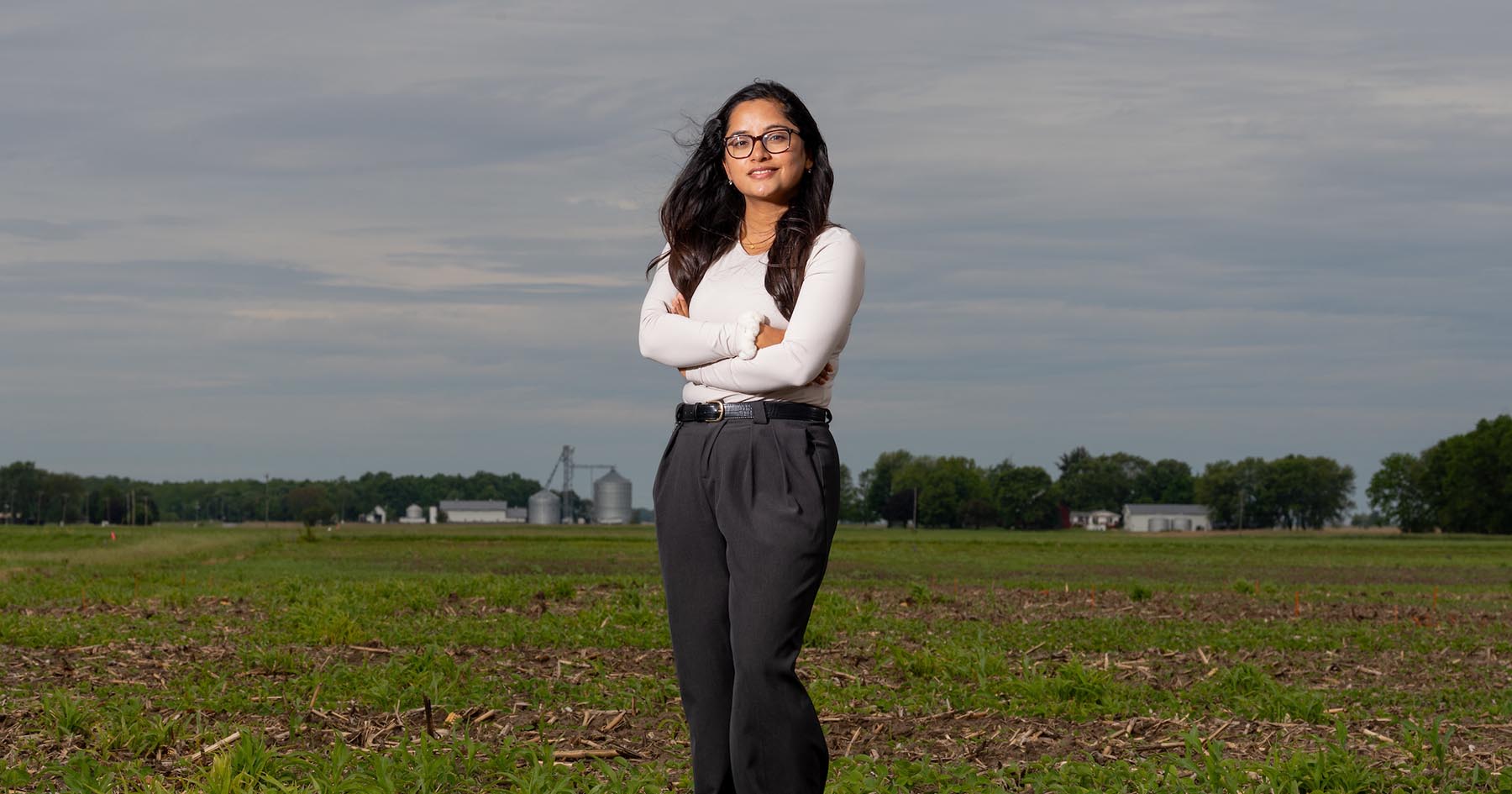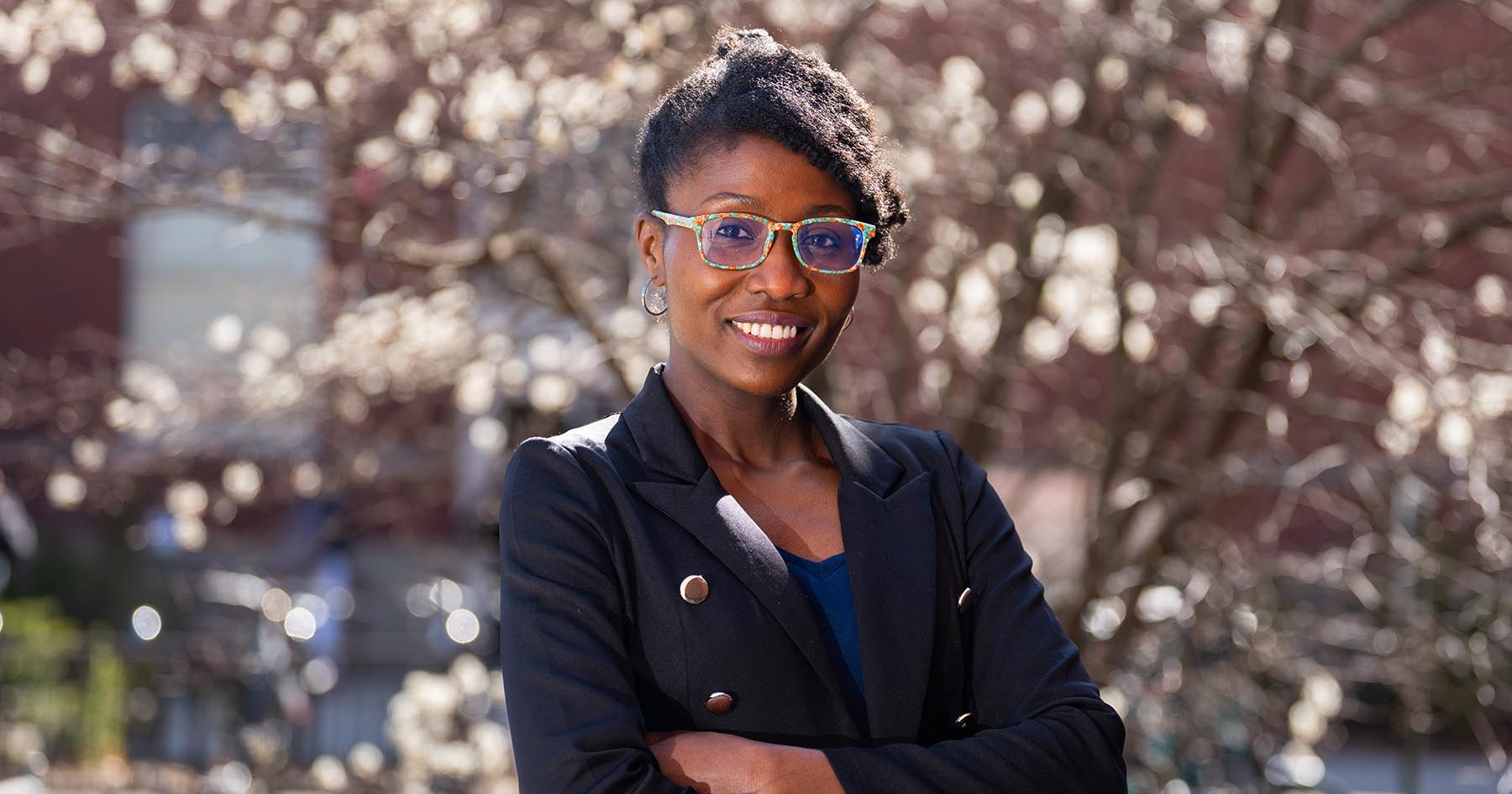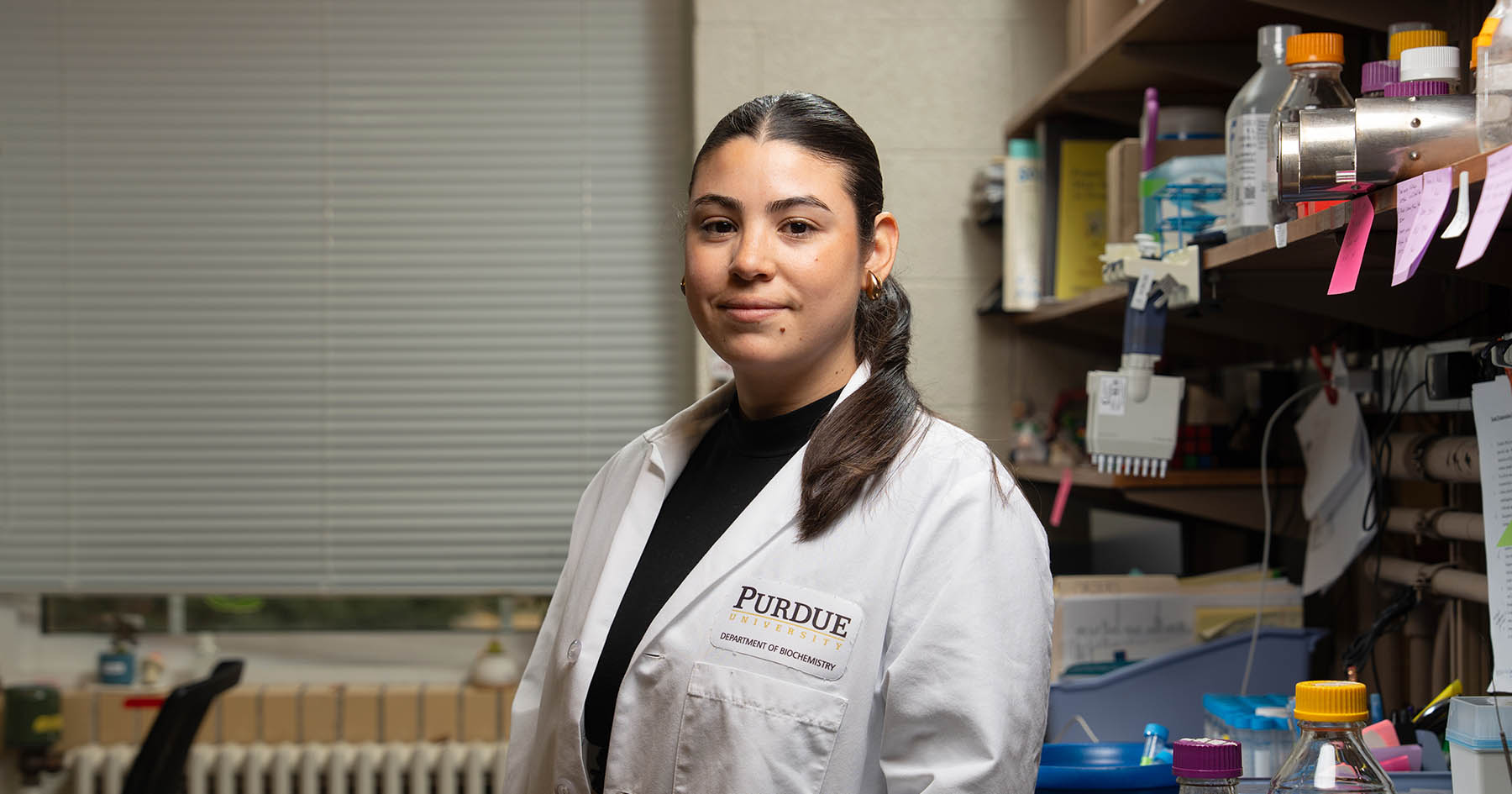Graduate Ag Research Spotlight: Travis Atkinson
“Back home in Jamaica, electricity is expensive, so businesses can’t compete very well. With cleaner, cheaper and more efficient energy, the entire economy benefits.”
- Travis Atkinson, PhD student, Agricultural Economics
The Student
Travis Atkinson was the first person in his immediate family to earn a university degree. “The most important lesson I learned from my parents was sacrifice,” says the native of Pitfour, Montego Bay, Jamaica. “I’m amazed at what they were able to do. I never felt like I lacked anything, but not having enough resources can make certain situations in life more difficult. I thought doing well in school could improve things for my family and myself.” He chose economics in part because economic thinking — doing the best he could to reach his goals given his financial constraints — had real-world applicability for him. Atkinson earned full scholarships toward bachelor’s and master’s degrees in economics at the University of the West Indies, Mona in Kingston. When he registered for the GREs in preparation for doctoral study, he received informational emails from several universities. The first came from one he’d never heard of — Purdue. He saw that as a sign and applied to the PhD program in Agricultural Economics based on its emphasis on application and Extension. He arrived in Indiana in August 2016 to work with Paul Preckel, professor of agricultural economics.
The Research
Atkinson’s research involves long-term planning for the electricity sector in small island states. Such decision analysis includes how much electricity they will need over the next two to three decades, how much capacity new power plants should have, when and where they should come on line, and the impact of different modelling approaches on long-term investment planning. He also focuses on energy policy analysis. “Many small islands like mine are trying to become more energy independent, using renewable resources to replace some of our imported fossil fuel while ensuring reliable electricity supply. We therefore need to look at different policy options to get us there,” he explains.
Seizing Opportunities
Being active in the Purdue Agricultural Economics Graduate Student Organization (GSO) balanced his academics, Atkinson says. He returned to Jamaica last spring for a conference and will attend a U.S. energy conference in November — opportunities he credits to his PhD committee, and especially his advisor. “His general approach is to support his students 100 percent,” Atkinson says of Preckel. “The process of earning a PhD can induce self-doubt, but I know he believes I will do well. You need somebody to believe in you.”
Future Plans
Whether Atkinson chooses academia or industry, “I want what I do to make a difference,” he says. “I live by Will Smith’s philosophy: ‘If you’re not making someone else’s life better, you’re wasting your time.’” In his spare time, Atkinson enjoys intramural sports with his department. “When I was younger, I used to write stories and poems,” he says. “If I had more spare time I think I’d play football (soccer) or get back to reading and writing fiction.”

